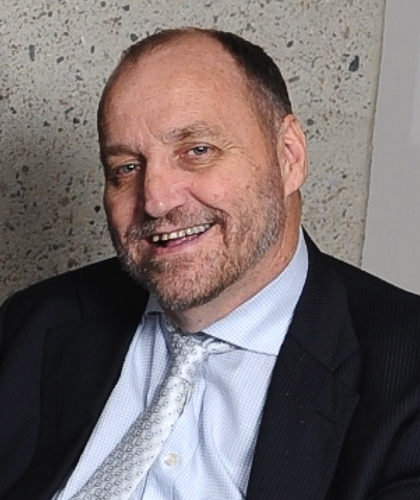Centre Parton, Kevin Cocks AM D.Univ thoughts on making equality your priority
Commentary from Kevin Cocks AM D.Univ 
I would like to begin by acknowledging the traditional custodians on the land that we gather the Turrbal and Yuggera peoples.
In the spirit of reconciliation, I acknowledge the Kamilaroi people, who are the custodians on the land that my formative years help shape my worldviews in many ways particularly, my values, to treat people with dignity, respect and embrace difference.
I pay my respects to all first nation ancestors and to those elders, and emerging leaders whom provide wisdom and hope for the Hopkins Centre and Griffith University.
The most powerful person in the world is a storyteller…
The storyteller sets a vision and structures that guide, common values, and agenda of future generations that are to come. The storyteller tells his/her story through the eyes of their worldview, in that, how they experience the world based on their truths. In Australia, for people with disability, aboriginal and Torres Strait Islander peoples and religious beliefs other than Christianity their stories are told by the privileged, based on historic mythology and stereotypes that have evolved from the time man began telling story, to advantage their privilege. These stories 'other', dehumanise and exclude, through the institutions that govern the way that people with disability continually experience inequality often daily and in all aspects of their civil and political, social, economic, and cultural life. This inequality makes us vulnerable due to the social constructs of systemic discrimination/exclusion that these institutions facilitate.
Understanding your own story is the key to understanding yourself, your world and your capacity to act within the world. For you to create your identity and not others to create an identity that diminishes your value as a human being. You know your strengths, as history clearly demonstrates it has been people with disability who have utilised their strengths to create the pathways that diminish inequality. I do not have time in this piece to elaborate on all of the innovations developed by people with disability but just to give 2 examples;
- In France, the first sign languages developed in the 18th century. Old French Sign Language was used in Paris' deaf community, before l'Abbé Charles Michel de l'Épée started his deaf school in 1760 in Paris. L'Épée's lessons were based upon his observations of deaf people signing with hands in the streets of Paris.
- Louis Braille developed a raised-dot code that enabled blind people to read and write. Louis Braille's system was largely completed by 1824 when he was 15 years old. The Royal Institute for Blind Youth showed no interest in altering the established methods of the school, and indeed, they were actively hostile to its use. Dr. Alexandre René Pignier, headmaster at the school, was dismissed from his post after he had a history book translated into braille. Unfortunately, Louis Braille died at the age of 43 and never saw his system introduced to the teaching institutions for the blind.
The path of influence through relationships is the path of a new story and an evolving culture that dismantles the institutions that deny us equal opportunity.
- I believe relationships are the cornerstone for dismantling the institutional structures thus minimising vulnerability and building identity as an individual and collectives. Relationships provide the foundation to bring marginalised people out of the shadows of society and into the centre to experience equal opportunities, equal Justice and freedom from discrimination.
- It takes great courage for a marginalised person to speak up and speak out about injustices, equally it takes courage for a powerful and influential person to stand alongside a vulnerable person and speak out about injustices. The Hopkins Centre, staff and ambassadors, at different times in your life you may experience vulnerability and power and influence. It is critical in your story to demonstrate integrity, values of respectful relationships, empathetic decision-making and just doing the right thing.
Stories have a way of bringing us back to the things that matter most
- I believe engagement through conversations or storytelling, leads to relationships and access to networks where change is codesigned and community is enriched. Or in other words it requires participatory leadership. Participatory leadership is a strengths-based approach to working with individuals, organisations and communities. It assumes that in a world that is becoming increasingly complex and fragmented, solutions and innovation lie not in one leader or viewpoint, but in the collective wisdom gathered from lived experience of the individual and of the group. It is leadership that allows the voice of stakeholders to inform key policy and practice decisions, and actively builds the capacity of individuals to engage and be engaged in genuine partnership.
- Action requires leadership. Everyone, at the Hopkins Centre is a leader whether you recognise it or not. The old paradigm of positional leadership no longer exists. The spirit of participatory leadership is clear and challenges us all to examine our actions and what are we doing to build genuine relationships when welcoming our newest neighbours. Genuine relationships recognise our own and others individual stories that lead to new and influential relationships. Influential relationships lead us to new possibilities that once we would have never imagined.
I believe people just need to find their purpose, and your purpose in turn will require your unique self to make a unique difference.
In closing I will draw upon Helen Keller:
... though it is true that there is no king who has not had a slave among his ancestors, and no slave who has not had a king among his. When indeed shall we learn that we are all related one to the other, that we are all members of one body? Alone we can do so little; together we can do so much” ― Helen Keller
Tags: Human Rights, Equality

